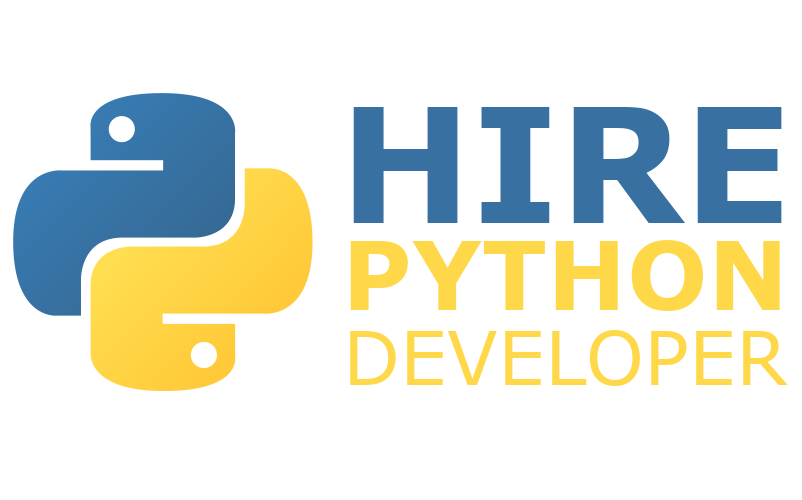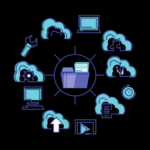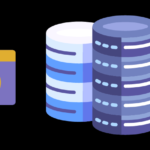Tips for Hiring the Best Remote Python Developer: Prioritize clear communication, assess time-zone compatibility, and ensure reliable tech infrastructure.
Looking to hire the best remote Python developer for your team? We have got you covered. So whether you are a startup or an established company, read on to discover the key steps and strategies that will help you recruit the perfect remote Python developer for your business needs.
Understanding the Benefits of Hiring Remote Python Developers
When it comes to hiring a Python developer, considering remote candidates can offer several advantages. Here are some key benefits to keep in mind:
- Access to a Global Talent Pool: By embracing remote work, you can tap into a vast talent pool of Python developers from around the world. This eliminates geographical limitations and allows you to find the best fit for your specific project or company.
- Cost Savings: Hiring remote Python developers often leads to significant cost savings compared to hiring locally. You can avoid expenses related to office space, equipment, and other overheads typically associated with on-site employees.
- Flexible Working Arrangements: Remote work provides flexibility for both employers and developers. It allows developers to work at their most productive hours while accommodating different time zones if necessary.
- Increased Productivity: Studies have shown that remote workers tend to be more productive than their office-bound counterparts. With fewer distractions and the ability to create an optimal working environment, remote Python developers can focus better on delivering high-quality code.
- Diverse Experience and Perspectives: Hiring remotely opens up opportunities for diverse teams by allowing access to a wider range of talents with varied backgrounds and experiences in different industries or cultures.
- Lower Employee Turnover: Offering remote positions increases job satisfaction among employees, which helps reduce turnover rates commonly associated with traditional office-based roles.
- Scalability and Agility: Remote hiring enables scalability as your business grows or when you need additional resources for short-term projects without facing logistical constraints typical in physical workplaces.
- Improved Work-Life Balance: Remote positions provide employees with flexibility in managing personal commitments alongside professional responsibilities, leading to increased job satisfaction and overall well-being.
In summary, embracing remote hiring for Python developers brings numerous benefits such as accessing global talent pools, cost savings, flexible arrangements, increased productivity levels, diverse perspectives contributing to innovation, reduced employee turnover rates, scalability, and improved work-life balance.
Identifying the Key Skills and Qualifications to Look for
When hiring a remote Python developer, it’s essential to identify the key skills and qualifications that will ensure you find the best fit for your company. Here are some factors to consider:
- Python Proficiency: Assess their level of expertise in Python programming. Look for experience with different frameworks like Django or Flask, as well as knowledge of libraries commonly used in Python development.
- Knowledge of Web Technologies: Ensure that the candidate has a solid understanding of web technologies such as HTML, CSS, JavaScript, and RESTful APIs. This knowledge is crucial for building scalable web applications using Python.
- Database Experience: Check if they have experience working with databases such as MySQL or PostgreSQL. The ability to design efficient database schemas and write optimized queries is vital for developing robust applications.
- Problem-Solving Skills: A good Python developer should be able to analyze complex problems and come up with innovative solutions efficiently. Look for candidates who can demonstrate their problem-solving abilities through coding challenges or real-life examples.
- Collaboration & Communication: Remote work requires strong communication skills since developers need to coordinate with team members effectively despite physical distance. Look for candidates who have experience working remotely or possess excellent written and verbal communication skills.
- Git & Version Control Knowledge: Proficiency in using Git and understanding version control concepts is essential when collaborating on codebases remotely.
7 .Unit Testing & Debugging Abilities: Skilled developers understand the importance of writing clean code that can be easily tested and debugged if issues arise later on.
8 .Continuous Learning Mindset: Technology evolves rapidly; therefore, look out for developers who show enthusiasm towards learning new tools, languages, frameworks, etc., keeping themselves updated with industry trends.
By considering these key skills and qualifications during your hiring process, you’ll increase your chances of finding a top-notch remote Python developer who can contribute effectively to your team.
Effective Ways to Source Remote Python Developers
When it comes to hiring the best remote Python developer for your team, sourcing candidates effectively is crucial. Here are some tried and tested strategies that can help you find top talent:
- Utilize online job platforms: Post detailed job descriptions on popular online job platforms such as Indeed, LinkedIn, and Stack Overflow Jobs. These platforms have a vast network of developers actively seeking remote opportunities.
- Tap into developer communities: Engage with relevant online communities like Reddit’s r/Python or GitHub repositories focusing on Python projects. Participate in discussions, seek recommendations, and leverage these networks to discover talented individuals.
- Attend virtual tech events: Attend webinars, conferences, or meetups dedicated to Python development. These events provide an opportunity to connect with skilled developers who are passionate about their craft.
- Leverage social media channels: Utilize social media platforms like Twitter and Facebook groups that focus on software development or specifically target Python programmers. Share your requirements and engage directly with potential candidates.
- Explore freelance marketplaces: Platforms like Upwork or Freelancer offer access to a pool of experienced freelance developers proficient in Python programming. Review portfolios and past work samples before making a decision.
- Consider specialized recruitment agencies: Partnering with specialized IT recruitment agencies can save time by leveraging their expertise in finding the right talent for your specific needs.
- Review open-source contributions: Look for developers who contribute regularly to open-source projects related to Python on platforms like GitHub or GitLab; this demonstrates their knowledge and commitment within the community.
- Conduct technical assessments: Develop coding challenges specific to your project requirements as part of the hiring process—platforms like HackerRank or Codility can assist in evaluating candidates’ technical skills remotely.
Remember, when sourcing remote Python developers ensure clear communication channels during interviews using video conferencing tools such as Zoom or Skype. This allows you to assess their communication skills and cultural fit within your team.
By implementing these effective sourcing strategies, you’ll increase your chances of finding the best remote Python developer who aligns with your project’s requirements and contributes to its success.
Conducting Interviews and Assessments Remotely

When hiring a remote Python developer, conducting interviews and assessments remotely is crucial to ensure you find the best candidate for the job. Here are some tips on how to effectively conduct interviews and assessments remotely:
- Prepare a structured interview process: Define a clear structure for your remote interview process. This includes preparing a list of questions that assess the technical skills, problem-solving abilities, and relevant experience of the candidates.
- Use video conferencing tools: Video interviews allow you to have face-to-face interactions with candidates even when they are not physically present. Use popular video conferencing tools like Zoom or Skype to conduct virtual interviews.
- Test coding skills: To evaluate their coding proficiency, ask candidates to complete coding exercises or live coding sessions during the interview. You can use platforms like HackerRank or LeetCode for this purpose.
- Assess problem-solving abilities: Present candidates with real-world scenarios or challenges related to Python development and ask them how they would approach solving these problems remotely.
- Evaluate communication skills: Effective communication is essential in remote work environments. During the interview, assess how well candidates communicate their ideas, listen actively, and collaborate virtually.
- Check references and portfolios: Request references from previous employers or clients who can provide insights into a candidate’s performance in past projects involving Python development.
- Collaborative assessment tasks: Assign collaborative tasks that reflect real-life scenarios where developers need to work together remotely using tools like GitLab or GitHub.
- Consider cultural fit: In addition to technical competence, consider whether a candidate aligns with your company culture and values as remote working requires self-motivation, discipline, and teamwork mindset.
Remember that it’s important to give each candidate an equal opportunity during the hiring process while keeping in mind any limitations imposed by geographical differences or time zones.
Evaluating Technical Proficiency and Problem-Solving Abilities
When hiring a remote Python developer, evaluating their technical proficiency and problem-solving abilities is crucial to ensure they possess the skills necessary for the job. Here are some effective methods to assess candidates in this area:
- Review Their Portfolio: Start by asking candidates to provide a portfolio of their previous work or relevant projects they have completed. Reviewing their code samples will give you an insight into their coding style, structure, and overall quality of work.
- Coding Challenges: Administer coding challenges or assessments that focus on Python programming concepts and problem-solving skills specific to your project requirements. These challenges can be conducted through online platforms or via video conferencing sessions.
- Live Coding Sessions: Schedule live coding sessions with short exercises related to real-world scenarios the candidate may encounter in your organization’s workflow. This will allow you to observe how well they think on their feet and solve problems efficiently under pressure.
- Technical Interviews: Conduct technical interviews where you ask candidates questions related to Python fundamentals, algorithms, data structures, object-oriented programming concepts, debugging techniques, etc. Assess not only their knowledge but also how effectively they communicate complex ideas.
- Collaborative Projects: Assign collaborative projects that simulate working in a team environment remotely using tools like version control systems (e.g., Git) and project management platforms (e.g., Jira). Evaluate how well candidates contribute towards achieving project goals while adhering to best practices.
- Reference Checks: Contact references provided by the candidate who can vouch for their technical expertise and problem-solving abilities based on past experiences working together.
Remember that it’s essential not just to evaluate raw technical skills but also consider factors such as adaptability, creativity in finding solutions, ability to learn new technologies quickly if needed, and communication skills when assessing prospective remote developers’ suitability for your team.
By implementing these evaluation methods, you can confidently identify the best remote Python developer who possesses both technical proficiency and excellent problem-solving abilities.
Assessing Communication and Collaboration Skills in a Remote Setting

When hiring a remote Python developer, it is crucial to assess their communication and collaboration skills. Working remotely requires strong communication abilities to ensure smooth collaboration with the rest of the team. Here are some effective ways to evaluate these skills:
- Interview Questions: During the interview process, ask specific questions that gauge a candidate’s communication style and ability to work remotely. For example:
- How do you ensure effective communication when working remotely?
- Can you provide an example of a challenging situation you faced while collaborating remotely? How did you handle it?
- Portfolio Review: Examine a candidate’s previous work experience by reviewing their portfolio or GitHub contributions. Look for evidence of clear documentation, well-organized code structure, and active participation in open-source projects or collaborative coding environments.
- References: Contact references provided by the candidate, specifically asking about their remote collaboration experience with the individual in question. Inquire about how they communicated, resolved conflicts, and contributed as part of a distributed team.
- Technical Assessments: Incorporate practical assessments into your evaluation process that require candidates to collaborate virtually on coding challenges or projects using tools like Git or project management platforms such as Jira or Asana.
- Simulated Scenarios: Create simulated scenarios where candidates must demonstrate their ability to communicate effectively in a remote setting. This could include role-playing exercises via video calls or written communications through email or chat platforms.
- Communication Tools Familiarity: Consider evaluating candidates’ familiarity with popular remote communication tools such as Slack, Zoom, Microsoft Teams, or Trello during interviews or through self-assessment surveys.
Remember that successful remote developers not only possess technical expertise but also excel at proactive communication and adaptability within virtual teams.
Making the Final Decision: Selecting the Best Remote Python Developer
When it comes to hiring a remote Python developer, making the final decision requires careful evaluation and consideration. Here are some key steps to help you in selecting the best candidate:
- Review their Technical Skills: Assess the technical expertise of each candidate by reviewing their portfolio, GitHub contributions, or sample code they have shared. Look for experience with relevant frameworks (e.g., Django, Flask) and libraries commonly used in Python development.
- Evaluate Communication Skills: Strong communication is crucial for successful remote collaboration. During interviews or trial tasks, assess how well candidates communicate ideas and respond promptly. Consider language proficiency and clarity in expressing complex concepts.
- Assess Problem-Solving Abilities: A skilled developer should be able to tackle challenges independently while finding efficient solutions. Ask candidates about past projects where they encountered difficulties and how they resolved them.
- Consider Remote Experience: Prior experience working remotely can be an advantage as it demonstrates adaptability and self-discipline required for remote work environments. Evaluate if candidates have successfully worked remotely before or if they possess qualities that make them suitable for such settings.
- Conduct Technical Interviews: Engage candidates in technical discussions related to Python programming, algorithms, data structures, etc., based on your specific project requirements.
- Request References or Recommendations: Asking for references from previous employers or clients helps verify a candidate’s claims regarding their skills and work ethic.
- Trial Periods or Test Projects: To further evaluate a potential hire’s capabilities firsthand, consider offering a paid trial period or assigning a small test project relevant to your needs before committing long-term.
8 .Cultural Fit Assessment: Gauge whether candidates align with your company culture by evaluating their values, teamwork abilities,and problem-solving approach through behavioral questions during interviews.
Remember that finding the right fit may take time; prioritize quality over speed when making your final decision. By following these steps, you can increase the chances of hiring the best remote Python developer for your team.
Wrapping Up – Tips for Hiring the Best Remote Python Developer

Embarking on the journey to hire a remote Python developer? Equip yourself with these expert strategies to find the perfect candidate:
1. Communication Skills:
- Clarity: Ensure the developer can articulate complex ideas simply.
- Tools Proficiency: Familiarity with platforms like Slack, Zoom, and Trello is vital for remote work.
2. Technical Expertise:
- Portfolio Review: Dive into their past projects to gauge skill and relevance.
- Coding Tests: Remote tasks can provide insights into their problem-solving and coding proficiency.
3. Time-zone Compatibility:
- Working Hours: Determine if they have overlapping hours with your team.
- Flexibility: Can they adapt to occasional meetings outside of their usual working hours?
4. Self-motivation and Discipline:
- Track Record: Have they successfully completed remote projects before?
- Feedback: Seek references or reviews about their remote working habits.
5. Robust Tech Setup:
- Stable Internet: Essential for seamless communication and work.
- Backup Systems: Prevents unexpected work disruptions.
With these strategies, you can effectively narrow down your candidates and hire the best remote Python developer tailored for your project’s success.
FAQs – Tips for Hiring the Best Remote Python Developer

1. Q: What technical tools are essential for remote Python developers?
A: Familiarity with Git, virtual environments, and collaboration platforms like Slack or Teams is paramount.
Key Points:
- Version Control: Git ensures seamless collaboration and code management.
- Environment Management: Tools like
virtualenvorcondahelp in isolating project dependencies.
Pro Tip: Check their proficiency by discussing a recent project setup or how they handled merge conflicts in Git.
2. Q: How can I test the practical proficiency of a remote Python developer?
A: Implement remote coding challenges that reflect real-world scenarios pertinent to your project.
Example: For a web project, ask them to set up a basic Flask API and push it to GitHub.
from flask import Flask, jsonify
app = Flask(__name__)
@app.route('/')
def hello():
return jsonify(message="Hello, remote world!")Pro Tip: Focus on their approach to the task, documentation, and how they handle feedback.
3. Q: How crucial is time-zone alignment for remote Python developers?
A: While it’s beneficial, what’s more, important is their availability during critical hours and communication responsiveness.
Key Points:
- Overlap Hours: Ensure a few working hours align for real-time collaboration.
- Availability: They should be reachable during emergencies or key discussions.
Pro Tip: Consider asynchronous communication. Tools like Notion or Asana can help track progress without real-time interactions.
4. Q: What soft skills are essential for remote Python developers?
A: Communication, proactiveness, and self-discipline top the list. Being remote, these skills are even more critical than in-person settings.
Example: A proactive developer might suggest improvements or anticipate potential issues before they become problematic.
Pro Tip: Behavioral interviews can provide insights into their soft skills. Pose hypothetical remote scenarios to gauge their responses.
5. Q: How do I ensure data security and code integrity with remote developers?
A: Use version control best practices, regular code reviews, and VPNs if necessary.
Key Points:
- Access Control: Grant permissions judiciously, ensuring they have access only to necessary parts of the project.
- Regular Audits: Schedule routine checks to ensure data and code integrity.
Pro Tip: Utilize platforms like GitHub or Bitbucket that offer robust permission settings and integrate well with CI/CD pipelines for automated code checks.
These FAQs will help you be well-prepared to hire the best remote Python developer who aligns with your project and organizational needs.
Matthew is a technical author with a passion for software development and a deep expertise in Python. With over 20 years of experience in the field, he has honed his skills as a software development manager at prominent companies such as eBay, Zappier, and GE Capital, where he led complex software projects to successful completion.
Matthew’s deep fascination with Python began two decades ago, and he has been at the forefront of its development ever since. His experience with the language has allowed him to develop a keen understanding of its inner workings, and he has become an expert at leveraging its unique features to build elegant and efficient software solutions.
Matthew’s academic background is rooted in the esteemed halls of Columbia University, where he pursued a Master’s degree in Computer Science.
As a technical author, Matthew is committed to sharing his knowledge with others and helping to advance the field of computer science. His contributions to the scientific computer science community are invaluable, and his expertise in Python development has made him a sought-after speaker and thought leader in the field.


![15 Most Contributed Python Projects on GitHub [Stats]](https://hirepythondeveloper.com/wp-content/uploads/2024/03/15-Most-Contributed-Python-Projects-on-GitHub-Stats-1-150x150.png)




